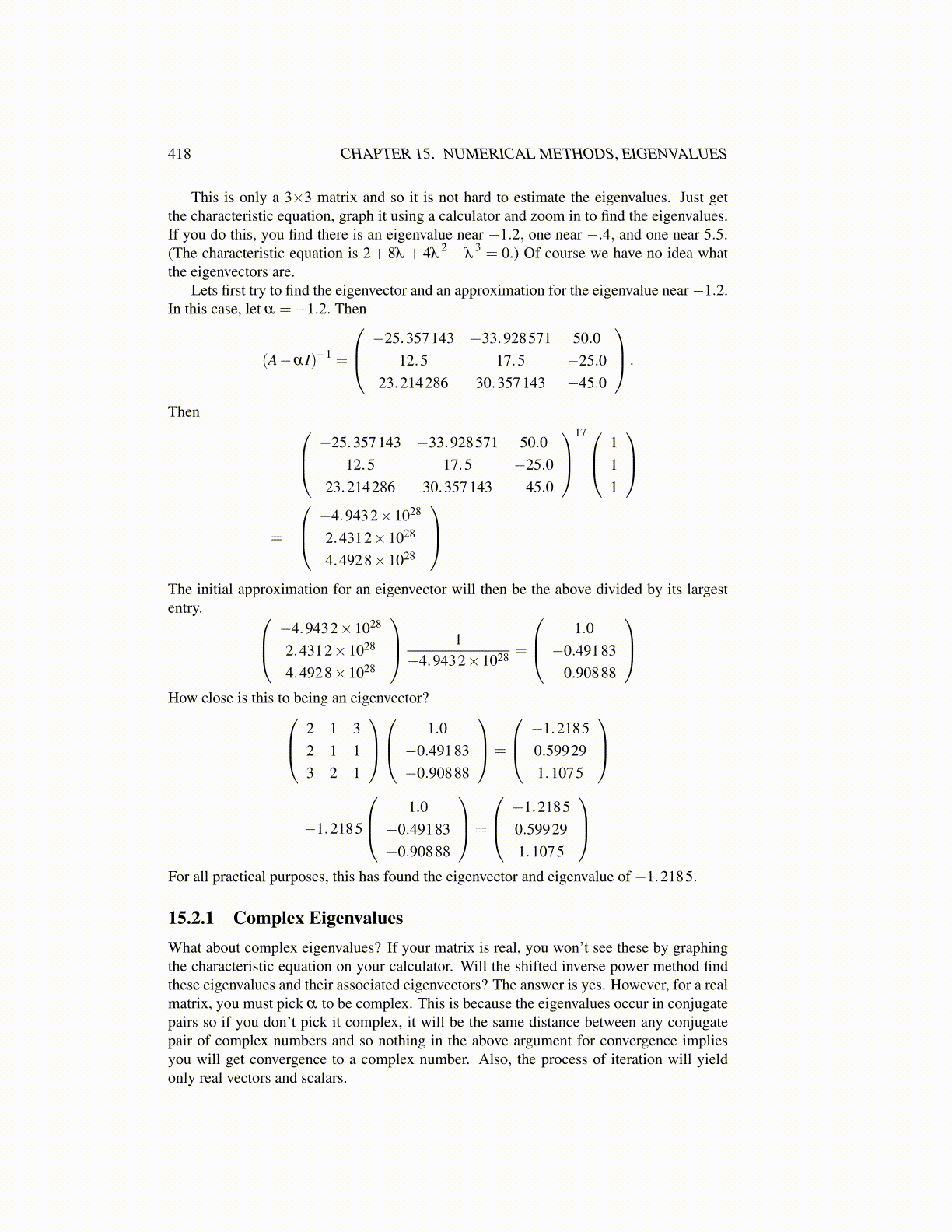
418 CHAPTER 15. NUMERICAL METHODS, EIGENVALUES
This is only a 3×3 matrix and so it is not hard to estimate the eigenvalues. Just getthe characteristic equation, graph it using a calculator and zoom in to find the eigenvalues.If you do this, you find there is an eigenvalue near −1.2, one near −.4, and one near 5.5.(The characteristic equation is 2+ 8λ + 4λ
2−λ3 = 0.) Of course we have no idea what
the eigenvectors are.Lets first try to find the eigenvector and an approximation for the eigenvalue near−1.2.
In this case, let α =−1.2. Then
(A−αI)−1 =
−25.357143 −33.928571 50.012.5 17.5 −25.0
23.214286 30.357143 −45.0
.
Then −25.357143 −33.928571 50.012.5 17.5 −25.0
23.214286 30.357143 −45.0
17 1
11
=
−4.9432×1028
2.4312×1028
4.4928×1028
The initial approximation for an eigenvector will then be the above divided by its largestentry. −4.9432×1028
2.4312×1028
4.4928×1028
1−4.9432×1028 =
1.0−0.49183−0.90888
How close is this to being an eigenvector? 2 1 3
2 1 13 2 1
1.0−0.49183−0.90888
=
−1.21850.599291.1075
−1.2185
1.0−0.49183−0.90888
=
−1.21850.599291.1075
For all practical purposes, this has found the eigenvector and eigenvalue of −1.2185.
15.2.1 Complex EigenvaluesWhat about complex eigenvalues? If your matrix is real, you won’t see these by graphingthe characteristic equation on your calculator. Will the shifted inverse power method findthese eigenvalues and their associated eigenvectors? The answer is yes. However, for a realmatrix, you must pick α to be complex. This is because the eigenvalues occur in conjugatepairs so if you don’t pick it complex, it will be the same distance between any conjugatepair of complex numbers and so nothing in the above argument for convergence impliesyou will get convergence to a complex number. Also, the process of iteration will yieldonly real vectors and scalars.